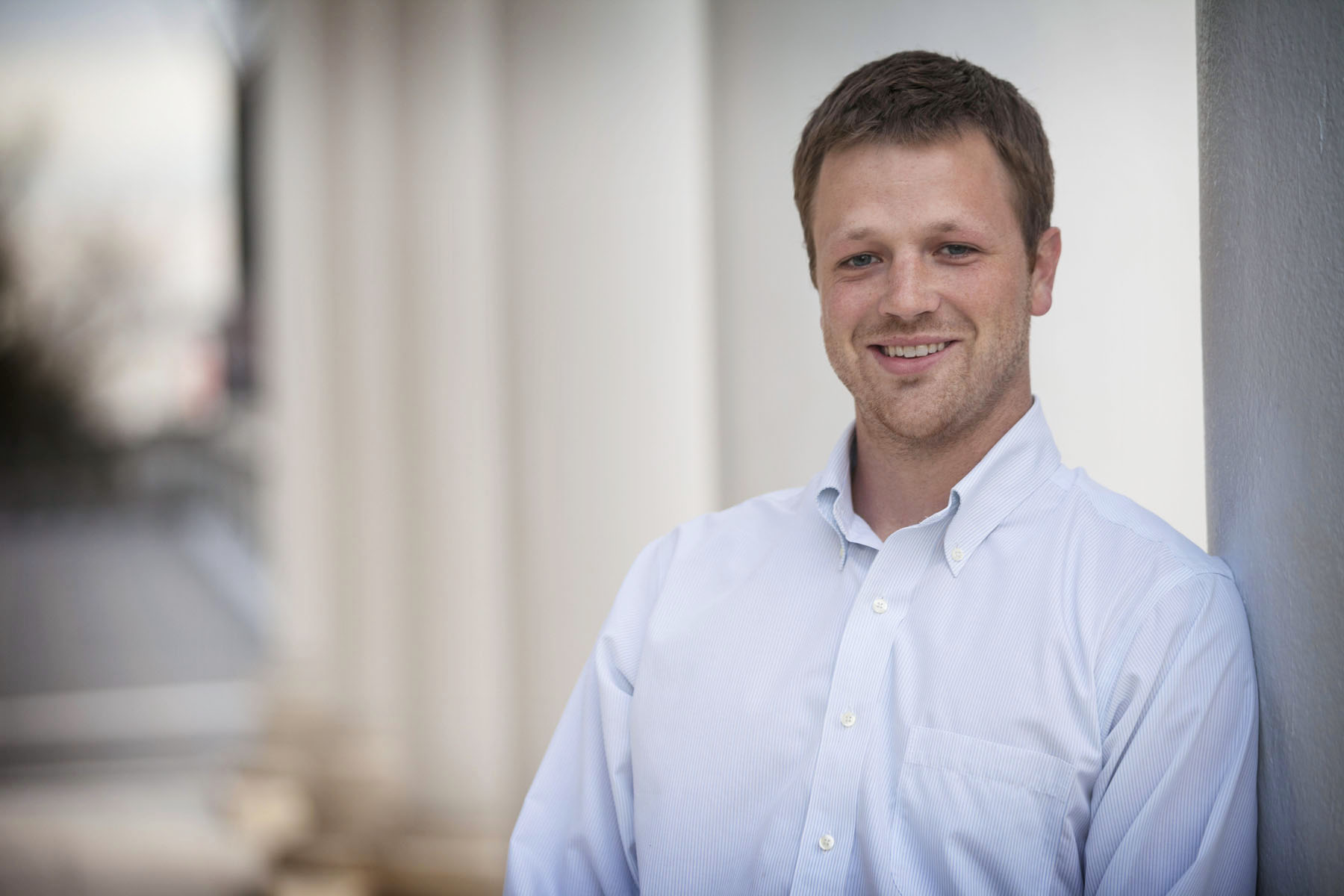Andrew Barr, a doctoral student in economics in the University of Virginia’s Graduate School of Arts & Sciences, has received an American Education Research Association dissertation grant for 2013.
The $20,000 grant, sponsored by the National Science Foundation, allows him to focus on his dissertation instead of teaching.
“It is an honor to have been selected,” Barr said. “I am very grateful to the people around me who have helped me make it this far.”
Barr, 28, of Richmond, is working on a dissertation titled “From the Battlefield to the Schoolyard: The Impact of the Post-9/11 GI Bill.” Barr, who is not a veteran, was drawn to the research by his interest in microeconomics and education. He said the GI Bill is interesting to him because of its levels of generosity and variation from previous large-scale educational subsidies.
“I study how massive increases in the generosity of financial aid to military veterans, provided by the Post-9/11 GI Bill, affect these individuals' educational choices and success in post-secondary education,” Barr said. “There is a lot of evidence that lowering the cost of attending school increases enrollment. However, there is little evidence that it has a positive impact on increasing persistence in college or overall attainment. This is a puzzle that I attempt to explore further.”
“The Post-9/11 GI Bill is one of the most generous financial aid programs in the history of higher education; it goes beyond reducing the cost of college to zero in many cases by actually providing veterans with a generous monthly housing allowance,” Barr said. “It may be that prior aid interventions were not substantial enough to free students from having to work while enrolled. If this is true, we might expect a larger attainment effect of the GI Bill.”
In 2011, there were 550,000 Post-9/11 GI Bill beneficiaries and nearly a million people in total taking advantage of educational benefits for veterans, including those offered under the older GI Bill program and reserve educational benefits. Since 2009, the program has cost more than $20 billion.
Barr’s adviser, Sarah E. Turner, University Professor of Economics and Education, praised Barr’s work.
“Andrew is uniquely positioned to make important contributions in economics and policy,” Turner said. “The shift from the Montgomery GI Bill, which provided a fixed annual sum in tuition and cost of living benefits, to a policy providing full funding for tuition, combined with a monthly living stipend, is likely to have substantial impacts on college choice as well as enrollment.”
Turner, who is working with Barr on several papers on how the current economic turmoil affects college enrollment, said Barr’s work combines a clear theoretical model with very careful empirical work.
“Andrew is creative and determined,” Turner said. “In addition to bringing a rich methodological toolkit to his research, he is an exceedingly hard worker and it is not unusual for me to get emails with time stamps well after midnight.”
The son of Carol Barr and Mark Barr, he is a graduate of Douglas S. Freeman High School in Richmond. He earned a bachelor’s degree in economics from U.Va. in 2007, winning the most outstanding major award and the best thesis award.
As a graduate student, he has received the President's Fellowship, the Bankard Pre-Doctoral Public Policy Fellowship and a Double-'Hoo Research Award to investigate, with an undergraduate, information cascades in the experimental economics laboratory.
“The fellowship will allow me to focus on my research, which will drive my success as an academic,” Barr said. “It will also give me the chance to interact with other graduate students and established researchers with interests in similar areas at meetings specifically set up for those receiving AERA grants.”
Barr’s research is unique in academia, he said.
“There are some non-profit organizations that have put out very high-level summary reports on the Post-9/11 GI Bill, but this is the first academic paper to evaluate the causal effect of the benefit expansion on changing enrollment and persistence of veterans,” he said. .
Media Contact
Article Information
January 12, 2013
/content/barr-receives-aera-grant-economicseducation-research

